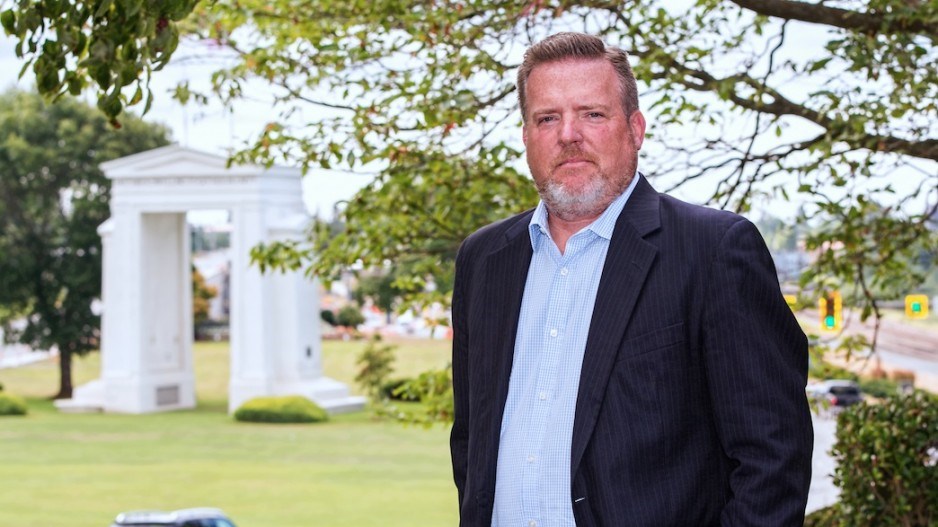Calls are mounting for the Canada Border Services Agency (CBSA) to warn Canadians to watch what they say about cannabis when crossing the U.S. border or face a permanent ban on visiting the country.
Being open about past marijuana use to U.S. border guards or being identified online as having an executive position at any U.S. company even remotely connected to the cannabis sector could result in being barred for life from entering the U.S., Blaine Immigration lawyer Len Saunders told Business in Vancouver.
His warning follows a spate of lifetime bans on entering the U.S. imposed on cannabis-sector executives.
Saunders said he is aware of at least 12 such cases in the past few months. Before April he had never heard of an executive at a company that did not touch cannabis plants being banned for life from entering the U.S., he added.
A Canadian who is now a naturalized U.S. citizen, Saunders said he is exasperated by Canadian government officials, such as new Minister of Border Security and Organized Crime Reduction Bill Blair, for saying in media interviews that Canadians should always answer truthfully when U.S. border guards ask questions.
Saunders said the best strategy if a border guard asks about past cannabis use, and the Canadian has consumed cannabis, is to say nothing.
Saying nothing may result in the Canadian being temporarily denied entry to the U.S., but being honest about past cannabis use will likely trigger a lifetime ban, Saunders said.
“The Canadian government just doesn’t get it. They have a lack of understanding.”
When Saunders earlier this year urged a parliamentary committee to get the Canadian government to launch an extensive campaign to educate Canadians on border crossing after the legalization of recreational cannabis, he inspired B.C. Sen. Mobina Jaffer to give an impassioned speech on the issue to the Senate in June.
The CBSA told BIV in a July 17 email that the government is giving the department $40 million over the next five years for all costs related to implementing the Cannabis Act, which legalizes recreational cannabis sales starting October 17. Only $1 million of that is earmarked for traveller awareness.
New CBSA online videos warn Canadians that crossing the U.S. border with cannabis is a serious offence, and the department intends to install signs at airports and other border crossings to provide the same message.
Saunders said the campaign needs to be much broader than just simple warnings about travelling with cannabis.
“Divest from any U.S. cannabis company or stop travelling to the U.S. Otherwise, you’re playing with fire.”
Vancouver-based venture capitalist Sam Znaimer is among multiple B.C. businessmen recently caught in the crosshairs of the U.S. Department of Homeland Security.
In May, U.S. border guards stopped him as he was crossing the international boundary and sent him to an interrogation room.
After being questioned for four hours about his investments, he was banned for life from visiting the U.S.
This was three days after a BIV story appeared in which Znaimer spoke about his investment of “several” million dollars in a portfolio of 16 different private companies related to the cannabis sector. Znaimer’s LinkedIn page and other internet sources also identify his involvement in the industry.
“I have not been charged with any crime,” Znaimer told BIV. “I have not committed any crime. The things that I do are things that Americans do in the tens of thousands with no repercussions. It is purely because I’m Canadian and I don’t have any of the rights of a U.S. resident or citizen that they can find me to be inadmissible to enter the country.”
Saunders said Znaimer’s problem was that two of the companies he had invested in are based in the U.S. Had Znaimer stuck to investing exclusively in Canadian-based cannabis companies, which have no operations in the U.S., he likely would have avoided being handed the lifetime ban, the lawyer said.
Saunders added that another client who has been handed a lifetime ban from entering the U.S. is a Canadian who owns U.S. real estate and is leasing space to a cannabis-related business. Another client sells soil to U.S. greenhouse operators, some of which grow cannabis.
While executives of cannabis-related companies appear to be the chief targets of the recent bans, Saunders said enforcement could get stricter.
“It is not a big jump to go from this to not being able to invest in companies on the Canadian Stock Exchange (CSE) that have U.S. holdings. I have not seen that happen yet.”
Among the dozens of companies on the CSE that have U.S. holdings are Cannex Capital Holdings (CSE:CNNX), Friday Night Inc. (CSE:TGIF) and Planet 13 Holdings Inc. (CSE: PLTH).
Those who get lifetime bans from entering the U.S. can file an application for a waiver for up to five years – a process that costs US$585 plus, usually, more than US$1,000 in legal fees.
Saunders said he files about 200 waiver applications per year and about 97% of them are granted. •




